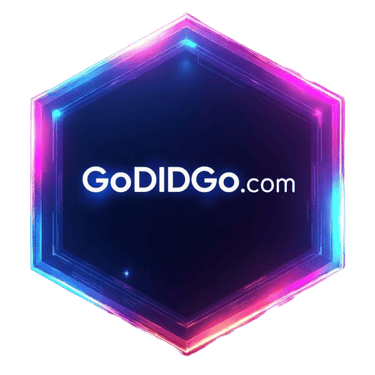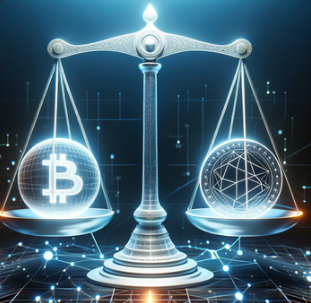Introducing Governance Tokens: From User Rights to Platform Control
godidgo.com
11/21/20245 min read


What are Governance Tokens?
Governance tokens are a type of digital asset that empower holders with rights to participate in the governance and decision-making processes of decentralized platforms, particularly within the realms of decentralized finance (DeFi) and blockchain ecosystems. These tokens play a pivotal role in shaping the future and functionality of various protocols, allowing users to influence key initiatives, propose changes, and vote on significant matters concerning the platform.
The primary purpose of governance tokens is to democratize control and ensure that community members have a voice in the development and management of the protocol. By holding these tokens, users gain the ability to directly participate in the evolution of the platform, providing them with a sense of ownership and alignment with the project’s goals. This participatory mechanism strengthens community engagement and enhances the sustainability of decentralized applications (dApps).
Several popular governance tokens have emerged in the market, each with unique characteristics that cater to specific platforms. For example, Compound’s COMP token allows users to vote on changes related to protocol upgrades, while Uniswap's UNI token enables stakeholders to influence governance over upgrades and changes to liquidity pools. Similarly, Aave's AAVE token gives platform users the authority to propose and vote on modifications, ensuring that the ecosystem evolves sustainably and with the input of its users.
Additionally, governance tokens often come with incentives that encourage users to engage actively in governance activities. By rewarding participation with additional tokens or fees, platforms foster a vibrant community that collectively steers the direction of the project. This innovative approach to governance serves not only to enhance transparency but also to create a robust decentralized environment that can adapt to the ever-changing landscape of the blockchain industry.
The Role of Governance Tokens in Decentralization
Governance tokens represent a pivotal shift in how decision-making processes occur within decentralized platforms and projects. Traditionally, centralized authorities held absolute control over business decisions, leaving users with minimal power or influence. In contrast, governance tokens empower users, granting them rights to participate in the governance of the platform. This transition fosters a structure where community consensus drives important decisions, resulting in a more inclusive environment where users feel valued and heard.
The introduction of governance tokens emphasizes the importance of stakeholder engagement in decentralized platforms. By holding these tokens, users gain a vested interest in the outcomes and development of the platform. This mechanism aligns the interests of users with those of the platform, as decisions made through governance tokens can directly affect their user experience and investment. In this sense, governance tokens not only democratize power but also encourage active participation, thereby reinforcing the principles of decentralization.
As the landscape shifts towards decentralized models, the implications for user rights are profound. Governance tokens enable users to voice their opinions on key issues, ensuring that diverse perspectives are represented. This collective decision-making process mitigates the risks associated with top-down governance mechanisms, which can lead to user disenfranchisement. Moreover, as users engage with the platform, they build a sense of community, fostering collaboration and mutual respect among participants.
In embracing governance tokens, platforms also promote equity. Each token often equates to a vote, allowing for a fair representation of varying interests within the community. This capability ensures that the governance structure is not only democratic but also recognizes the contributions of all users. By bringing this decentralized framework to fruition, governance tokens play an essential role in enhancing user rights and facilitating a more participatory ecosystem.
Benefits and Challenges of Governance Tokens
Governance tokens have emerged as a pivotal component in decentralized platforms, providing users with the ability to influence key decisions. One of the primary benefits of governance tokens is enhanced user engagement. By empowering token holders to participate in significant decisions, such as protocol upgrades or allocation of resources, these tokens foster a sense of ownership among users. This active involvement often cultivates a dedicated community, leading to a more vibrant and engaged user base.
Another notable advantage is increased transparency. With governance tokens, the decision-making processes are typically conducted on-chain, allowing for public scrutiny and accountability. This transparency not only bolsters user trust but also encourages adherence to community standards as stakeholders can monitor actions and ensure compliance with established protocols.
Furthermore, governance tokens promote better alignment of interests among stakeholders. By linking decision-making power to token ownership, stakeholders are incentivized to act in the best interest of the platform, as their investment is directly affected by the outcomes of governance decisions. This alignment can lead to more informed and balanced decision-making, ultimately benefiting the platform as a whole.
However, the implementation of governance tokens is not without challenges. One significant concern is the possibility of low voter turnout. Often, only a small percentage of token holders participate in governance votes, which can lead to a lack of legitimacy in decisions made. This disengagement may stem from apathy or the complexity of understanding the governance issues at hand.
Additionally, there is the risk of power concentration among a select group of token holders. When a few individuals possess a significant number of tokens, they can dominate the decision-making process, undermining the platform’s decentralized ethos. Lastly, governance attacks, where malicious actors manipulate governance mechanisms for their benefit, pose a considerable threat. Such vulnerabilities highlight the importance of designing robust governance frameworks that can safeguard against potential exploits.
The Future of Governance Tokens
The landscape of governance tokens is undergoing significant transformation as technology and user expectations evolve. At the heart of this evolution is the need for more inclusive decision-making mechanisms. Traditional governance models often exclude a significant portion of the user base from the voting process, creating barriers that governance tokens can address. The future may see innovative voting mechanisms that leverage quadratic voting or other methods to empower more voices, ensuring that token holders have equitable influence over platform decisions.
In addition to enhanced participation, the tokenomics of governance tokens are also poised for considerable innovation. As platforms recognize the diversity of their user bases, the design of governance tokens may shift toward more flexible and adaptive structures. This could involve multi-tier token systems where different classes of tokens afford varying levels of governance authority, enabling users to engage according to their stake and involvement level. Such an approach would not only democratize governance but also incentivize active participation in ecosystem development.
Moreover, the importance of regulatory frameworks cannot be overstated. As governance tokens become more mainstream, regulators worldwide are beginning to take notice. The establishment of comprehensive regulations will play a crucial role in shaping the functionality and adoption of governance tokens. Clear guidelines will not only bolster investor confidence but also promote innovation by providing a secure environment for platforms to experiment with novel governance structures. These regulations will likely push for transparency in the distribution and usage of governance tokens, fostering greater trust among participants.
Overall, the future of governance tokens is characterized by an emphasis on inclusivity, innovative economic models, and supportive regulatory environments that will collectively enhance the role of governance tokens within the blockchain ecosystem.

Get in touch
Feel free to contact us to inquire about any of the Web2/DNS and Web3/Onchain domains showcased on our platform. We are open to receiving proposals and evaluating direct purchase offers for all the digital assets featured.
Our team is also available to explore tailored agreements and negotiated sales, ensuring a smooth and efficient acquisition process that aligns with your specific needs.
Connect with us to amplify your identity across both the Web2/DNS & Web3/Onchain landscape. Together, let's redefine the future of digital identities and brands.
Contact us now to elevate your DIDs & Brands to new heights, because in the world of Go DID Go! your Digital Identity is not just owned; it's celebrated!
Contact Us
info@godidgo.com




